We would like to monitor how you interact with this website so we may continue to improve it.
The morning of VE Day 1945 in the Hartlepools started with the raising of the flags of the United Nations on the Municipal Buildings at West Hartlepool, and the flying of the Union Jack on public buildings, including on the Central Post Office on Whitby Street. At Hartlepool the Borough Hall was decorated with old bunting originally bought for the Coronation of King George VI in 1937, enhanced by two new flags and a few streamers bought locally.
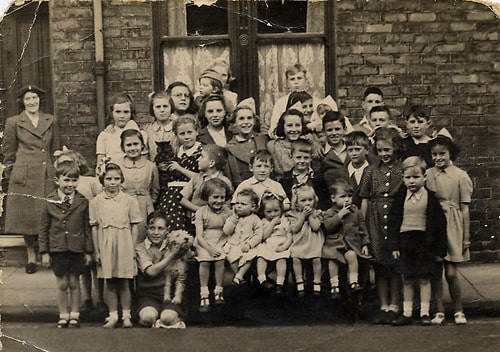
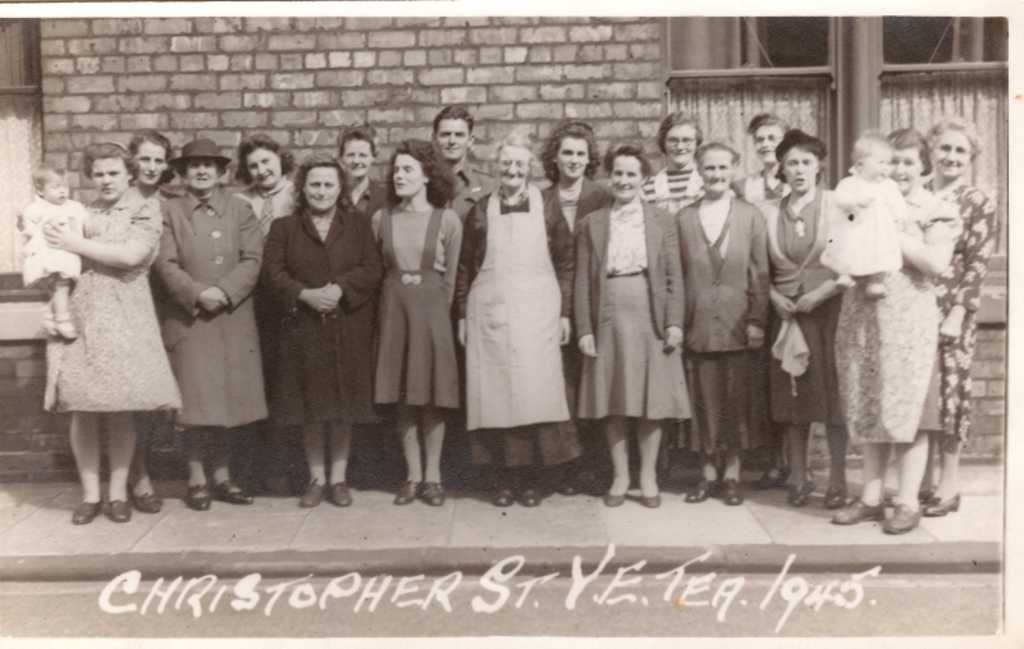
There was however a scarcity of bunting across the Borough with which to decorate homes and shops. This of course did stop people from “making do” as they had throughout the war. For example, one elderly retired sailor living in Foggy Furze raided his old sea chest, and strung up Victorian era signal flags and an ancient Red Ensign instead. Other people across the Borough did the same by reusing old Christmas decorations or faded bunting, with the occasional USA and Soviet flag thrown in wherever one could be found. A few ships in the Hartlepool docks were also quickly decorated, while local motor buses and the rare taxi flew small Union Jacks.
While the Borough did its best to get decorated that morning, down in London crowds started gathering at Buckingham Palace and other important buildings from almost first light. Despite a series of thunderstorms before the sun came out at Noon, these crowds grew into the tens of thousands.
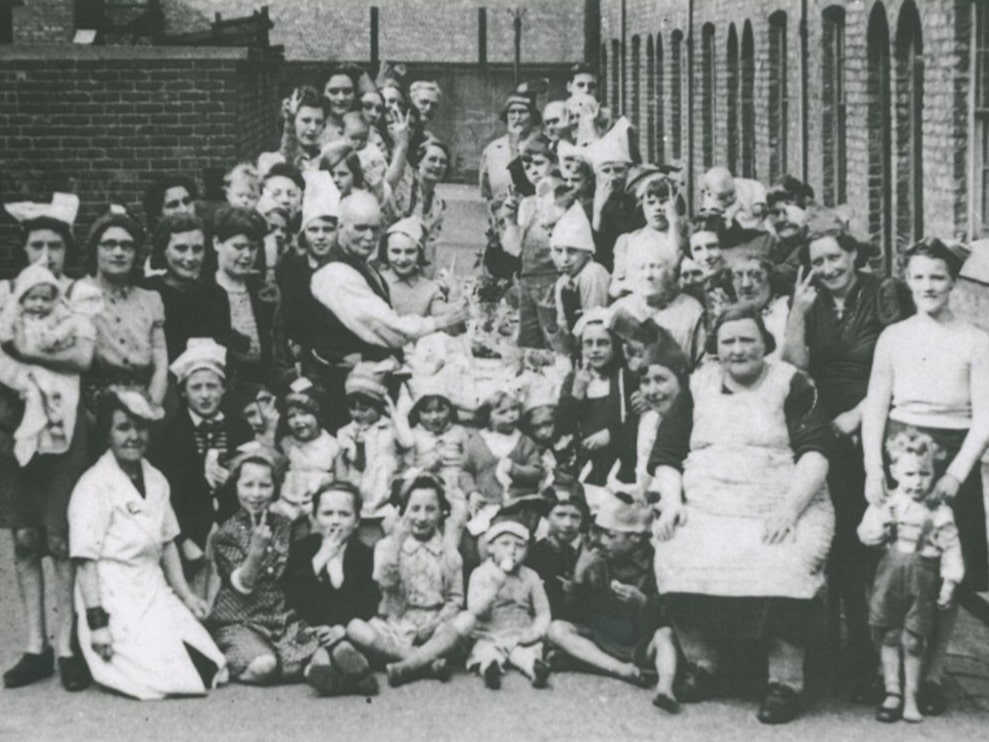
People also started gathering early in Church Square and outside the Borough Hall in Middlegate, despite the dull and overcast weather. At 10.00 am a programme of recorded music began to be played from a gramophone over loud speakers from the Municipal Buildings at West Hartlepool. The first song played was “The Lambeth Walk” sung by Gracie Fields which, according to the Northern Daily Mail, “Did not produce the response it might have done elsewhere”. The rest of the programme, which comprised of music and songs by military bands, popular dance numbers, and the national anthems of the Allies, was reported to have been better suited to the mood of the crowd and passers-by.
Shops were busy in both Hartlepool and West Hartlepool during the morning, as housewives queued to buy food for street parties. The biggest queues were outside bakers, as people waited patiently to obtain a celebration cake.
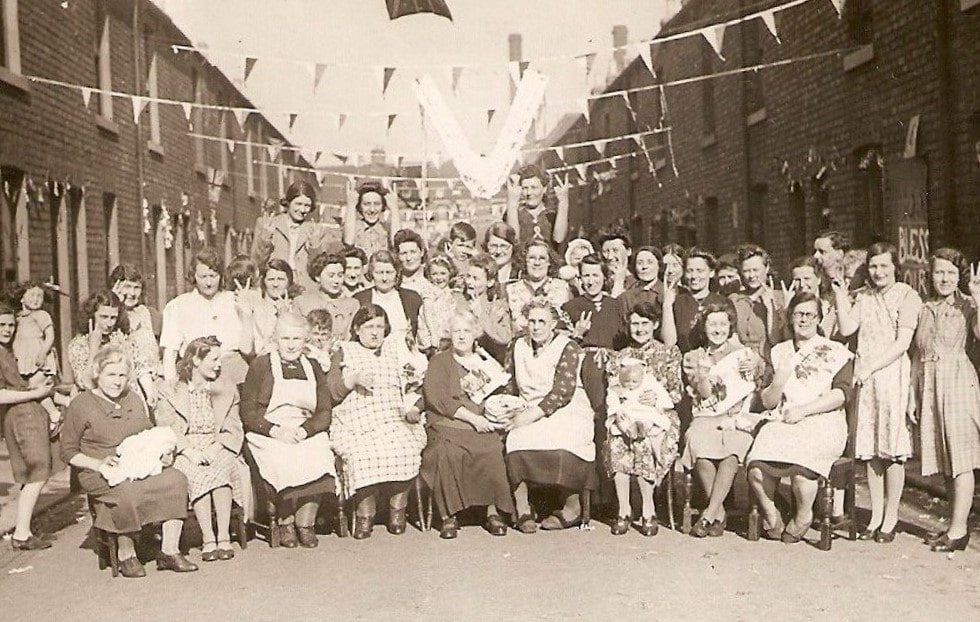
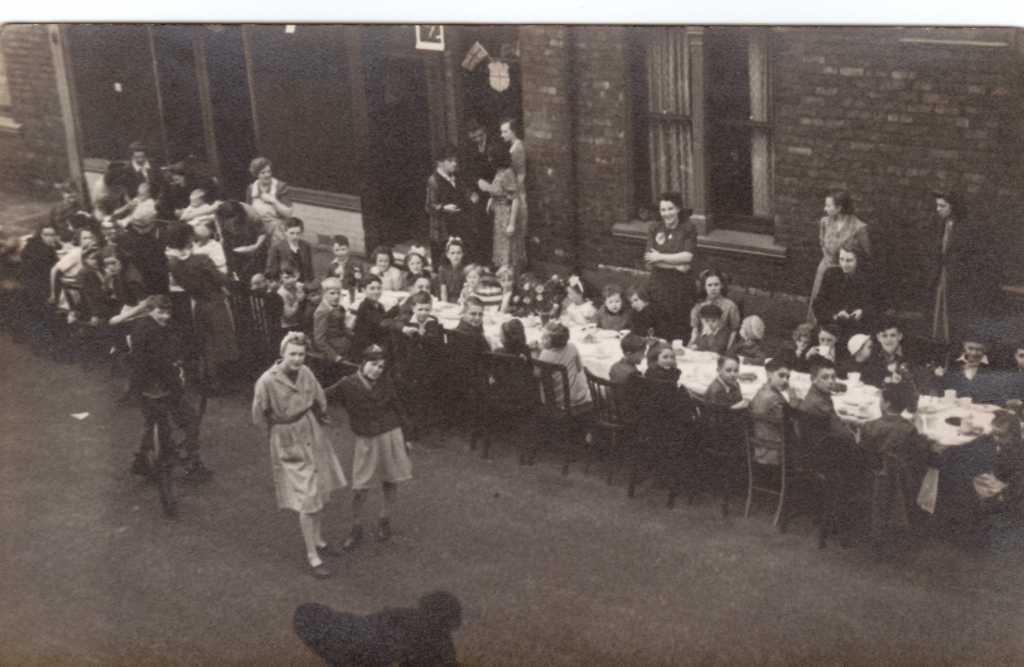
At 3.00 pm that afternoon, Prime Minister Winston Churchill addressed the Nation on BBC radio to officially announce the end of the war in the West. As he began his speech, broadcast live from the radio over the speakers in Church Square, the Union Jack was raised on the tower of Christ Church. Churchill noted that “We may allow ourselves a brief period of rejoicing; but let us not forget for a moment the toil and efforts that lie ahead”, a reminder that the war against Japan was still going on despite the victory celebrations.
When he had finished King George VI and Queen Elizabeth, later known as the Queen Mother, came out onto the balcony of Buckingham Palace to great the crowds, accompanied by their family. After a while Princesses Elizabeth and Margaret slipped out of the palace and joined the crowd incognito.
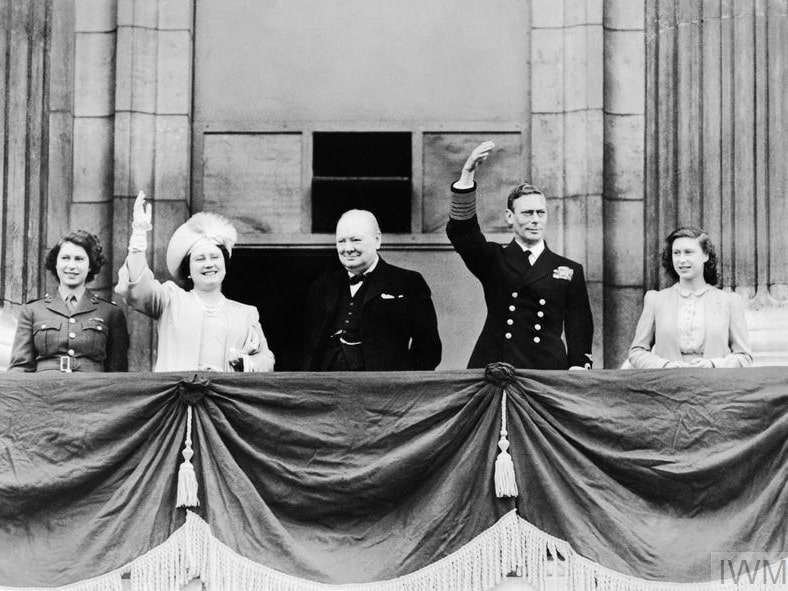
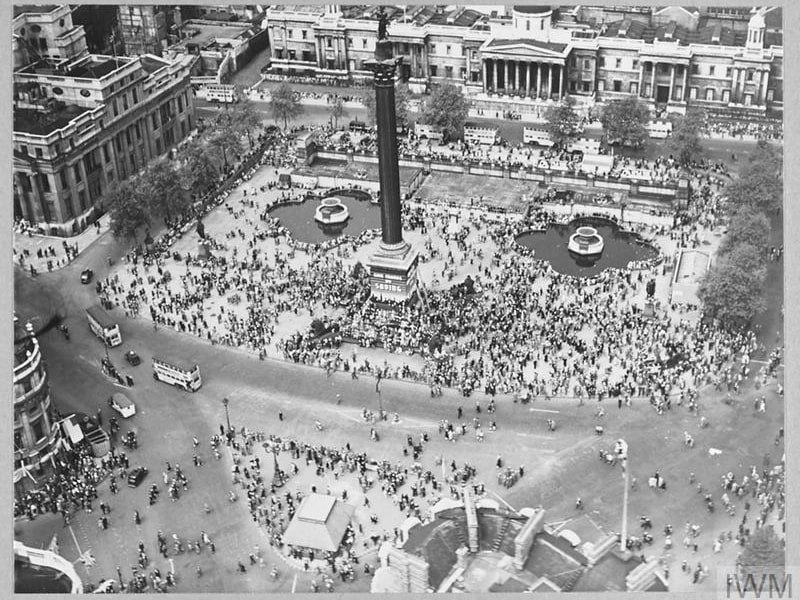
After listening to Churchill and a speech by Mayor Williams of West Hartlepool, the crowd in in front of the Municipal Buildings commenced dancing. Mary Forcer later remembered that,
“On VE-Day everybody just went mad. All the church bells were ringing and everybody was out on the street singing and if you saw somebody in uniform people were throwing their arms round them and just generally dancing and singing in the street”.
Dancing and singing continued into the late evening in Church Square by the glow of the floodlights lighting up Christ Church for the first time in over five years.
More formal victory dances were also held that evening in the Town Hall, where people were entertained by “Charles and his Dance Band”, and at the Queen’s Rink, where local musicians “Benny Nelson and his Full Orchestra” performed until midnight, accompanied by local swing singer Lil Gardner on vocals. Dancing continued the next day, with the Borough Hall sold out for appearances of the famous “Leslie “Jiver” Hutchinson and his All-Star Coloured Dance Orchestra” and by “Albert Flush and the Firecrackers Dance Orchestra”.
Between 3.20 pm and 4.00 pm that VE Day a third of the British adult population was tuned in to the radio to listen to the victory programme “Bells and Victory Celebrations”, which was enjoyed by audience across the County who,
“…found that this broadcast exactly fitted their mood and taste – it was vivid, noisy and inspiring; it brought invalids, and those who lived in remote corners of the country, in touch with the spirit of festivity in the capital and other cities visited“
While there was a blanket ban on bonfires across the Borough, a number were still constructed by groups of youths that afternoon and lit once it was dark. At West Hartlepool a procession of children were seen carrying an effigy of Hitler dressed in set of painter’s overalls. Burning an effigy of Hitler was common in towns and cities around the country on VE Day, with similar effigies being reported by the Northern Echo to have been burnt in Fishburn village and in Barnard Castle.
That evening the King gave a speech on the radio,
“Let us remember those who will not come back…let us remember the men in all the services, and the women in all the services, who have laid down their lives. We have come to the end of our tribulation and they are not with us at the moment of our rejoicing”.
For many, though, the highlight of their VE Day was the opportunity to let their hair down and enjoy a street party with their friends and neighbours. There were Victory parties right across the Borough during the later afternoon and early evening, mostly attended by women and children, as most working-age men were still far away from home serving with the military.
Local man Ray Cummings later recalled,
“I can remember on VE-Day we listened to the radio and I remember Winston Churchill making his great speeches. And this man with a big drum and all the people with young kids behind him singing and shouting and going round the town, on the Headland, banging this great big drum because the war was over. They had street parties and all the kids were invited. And again the mothers found food, they made cakes and puddings and things like that. Jelly and custard and stuff. We were stuffing ourselves with food which we had never seen”.
VE Day 1945 was a day of mixed emotions; relief at the end of the war in the West, eagerness to finish the war in the East, a pause to remember all those who had made the ultimate sacrifice, but above all, a time to look forward to peace and better days.
Borough Hall
